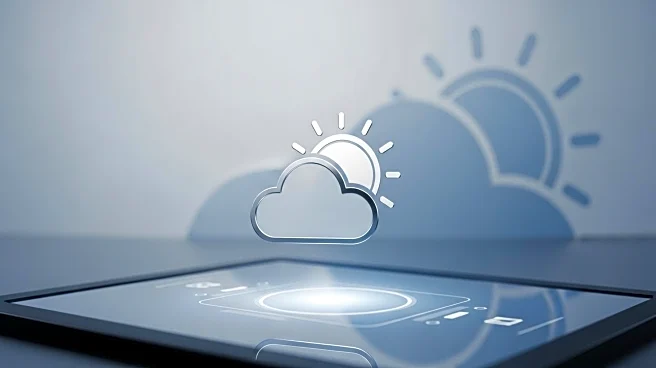What is the story about?
What's Happening?
Weather forecasting apps are facing criticism for their frequent inaccuracies in predicting local weather conditions. Despite advancements in meteorological technology, these apps often fail to provide precise forecasts, leading to public frustration. Meteorologists, such as Rob Thompson from the University of Reading, highlight the complexity of predicting localized weather patterns, especially convective rain, which is less predictable than larger weather fronts. The apps' reliance on postcode forecasts and their optimistic two-week predictions contribute to the issue. Additionally, some apps use free global data, which may not be suitable for local forecasts, further complicating accuracy. The simplification of weather data into app interfaces often results in a loss of nuance, causing users to misinterpret the information.
Why It's Important?
The inaccuracies in weather forecasting apps have significant implications for various sectors, including agriculture, event planning, and daily activities. Reliable weather forecasts are crucial for farmers to plan their operations and for individuals to make informed decisions about outdoor activities. The public's reliance on these apps for weather information means that inaccuracies can lead to inconvenience and potential financial losses. Moreover, the simplification of complex weather data into app interfaces can lead to misinterpretation, affecting public trust in meteorological services. As weather patterns become increasingly unpredictable due to climate change, the demand for accurate forecasts is more critical than ever.
What's Next?
Meteorologists and app developers are working to improve the accuracy of weather forecasts by integrating advanced physics models and artificial intelligence. These efforts aim to extend the forecasting capabilities beyond the current two-week limit, providing more reliable predictions. However, achieving pinpoint accuracy remains a challenge due to the inherent complexity of weather systems. The development of more sophisticated models and the refinement of app interfaces to better convey nuanced weather information are ongoing. As technology advances, there is hope for more precise and reliable weather forecasting, which could enhance public trust and reduce the frustration associated with current app inaccuracies.
Beyond the Headlines
The struggle with weather forecasting accuracy highlights broader issues in the communication of scientific data to the public. The simplification of complex information into easily digestible formats can lead to misunderstandings and misinterpretations. This challenge is not unique to meteorology but is prevalent across various scientific fields. The need for effective communication strategies that balance simplicity with accuracy is crucial to ensure that the public can make informed decisions based on scientific data. Additionally, the reliance on free global data by some apps raises ethical questions about the quality and reliability of information provided to users.

















